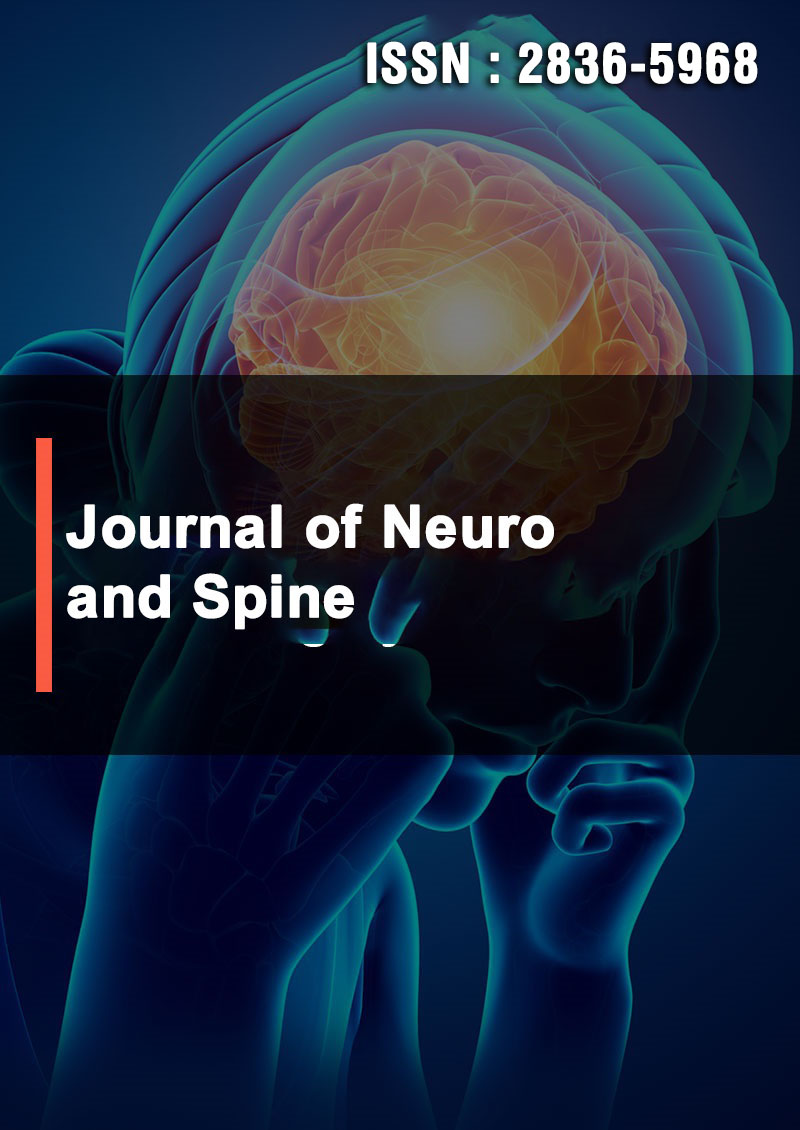Thoracic Spinal Cord Disruption Following Trauma Without Bone Lesion: Case Report and Review of Literature
Abstract
Napoleao Imbunhe, Fresnel Lutèce Ontsi Obame, Yao Christian Hugues Dokponou, Moussa Elmi Saad, Salami Mohcine, Cherkaoui Mandour, Abad Cherif El Asri, Miloud Gazzaz
Spinal cord injury without radiological abnormality (SCIWORA) is a term that describes objective clinical signs of post-traumatic spinal cord injury without evidence of fracture or malalignment on plain radiographs and computed tomography (CT) of the spine. SCIWORA is poorly documented and its occurrence at the level of the thoracic spine is uncommon. We present the case of a 36-year-old man admitted for paraplegia, low blood pressure, polypnea, and sphincter dysfunction following spinal trauma. A body scan revealed bilateral poster basal lung condensation without spinal bone lesions. A complete spine MRI shows subtotal medullary transection at the dorsal D4D5 level. There was no indication of surgery. The patient benefited from medical treatment with physiotherapy. One week later, he showed spontaneous cardiopulmonary improvement but no improvement in neurological status.



